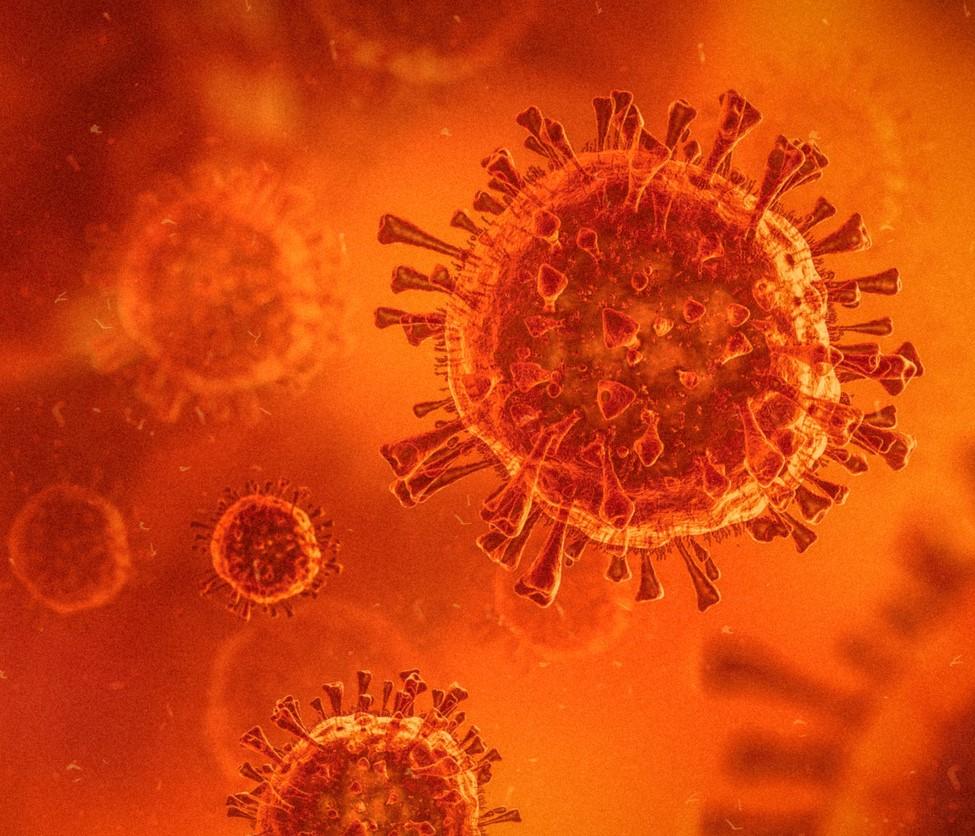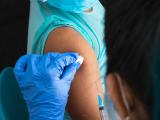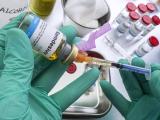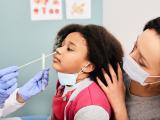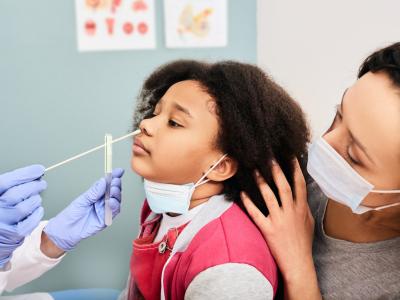"We may be done with the virus, but clearly the virus is not done with us."
That was the message from Centers for Disease Control and Prevention (CDC) Director Rochelle Walensky, MD, MPH, today during a White House COVID-19 briefing.
Citing the rising prevalence of B117 cases across the country, Walensky said that despite positive, downward trends in new cases, now is not the time for Americans to let down their guard against the novel coronavirus.
"Ten percent of cases are now B117, up from 1% to 4% a few weeks ago," Walensky said. What the nation needs to prevent a fourth spike of viral transmission due to B117, Walensky said, is mass vaccination, which is "imminent."
CDC predicts fewer upcoming deaths
The CDC variant tracker shows 2,102 B117 cases in 45 states, 49 B1351 cases in 15 states, and 6 P1 cases in 5 states, as of today. But these numbers are likely gross underestimates, as genetic sequencing of positive virus samples is just ramping up now across the country.
The United States reported 75,176 new COVID-19 cases yesterday, and 2,237 deaths, according to the Johns Hopkins COVID-19 tracker. In total, the United States has recorded 28,453,199 cases, including 508,997 deaths.
The 7-day average of new cases flattened this past week, after sharp declines following the holiday spike in viral transmission. The United States is currently averaging around 70,000 cases per day, a number Walensky said was still much too high.
The CDC also released its latest modeling forecasts of the pandemic yesterday.
"This week's national ensemble predicts that the number of newly reported COVID-19 deaths will likely decrease over the next 4 weeks, with 4,300 to 12,600 new deaths likely reported in the week ending March 20, 2021," the CDC said.
The models predict a total of 526,000 to 548,000 COVID-19 deaths will be reported in the United States by Mar 20.
White House touts public-private partnerships
Walensky said she and her colleagues were eagerly awaiting news from the Food and Drug Administration's (FDA) Vaccines and Related Biological Products Advisory Committee (VRBPAC) meeting today, which will determine if the Johnson & Johnson COVID-19 vaccine candidate is recommended to the FDA for emergency use authorization.
If it is, the vaccine could complete other regulatory hurdles over the weekend, and be distributed as soon as midweek next week.
Andy Slavitt, the White House senior advisor for COVID response, said the Biden administration, via the Chamber of Commerce, Business Roundtable, and the National Association of Manufacturers, was partnering with private companies to expedite the vaccination of the US population by this summer.
Slavitt said several companies, including Target, had already pledged to offer employees paid time off to get the vaccine, while Uber and Walgreens will launch a pilot program that gives people free rides to pharmacies.
The CDC COVID Data Tracker shows 91,673,010 COVID-19 vaccine doses have been delivered in the United States, and 68,274,117 doses have been administered, with 21,555,117 Americans fully vaccinated.
In related vaccine news, the FDA yesterday approved that the Pfizer-BioNTech vaccine can be transported and stored at conventional temperatures in pharmacy freezers for up to 2 weeks.
Black Americans under 40 least likely to take vaccine
According to a new poll based on data from the US Census Bureau, Black adults under the age of 40 are the most likely group of Americans to say they will not get a COVID-19 vaccine. Twenty-four percent of Black adults ages 18 to 39 say they "definitely won't" get the vaccine, compared with 11% of Hispanic and White adults.
All adults over the age of 65, however, showed more interest in getting the vaccine as soon as possible. According to a new Kaiser Family Foundation survey, more US adults are willing to be vaccinated now than at any other time in the pandemic.
Fifty-five percent of US adults now say they have received at least one dose of the vaccine (18%) or that they will get it as soon as they can (37%), up from 47% in January and 34% in December, KFF said.
Other US developments
- US officials have agreed to buy 100,000 courses of Eli Lilly's recently approved antibody cocktail treatment for COVID-19, CNBC reports.
- California surpassed 50,000 COVID-19 deaths this week, more than any state in the nation, according to the Los Angeles Times.
- More than 530,000 COVID-19 cases have been linked to college campuses since the pandemic began, according to a new analysis from The New York Times, including 120,000 cases reported since Jan 1.
